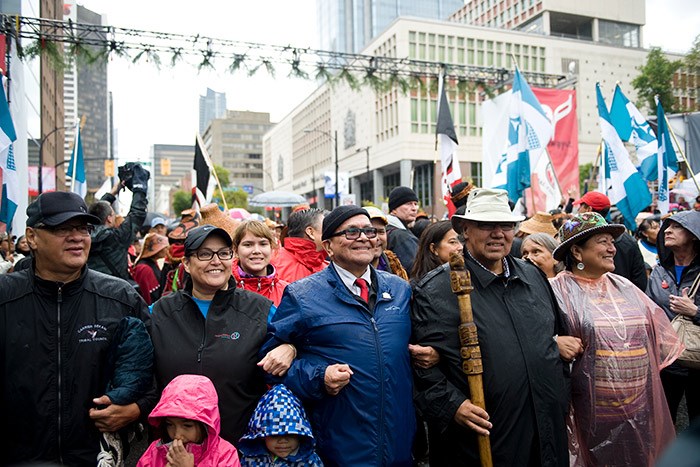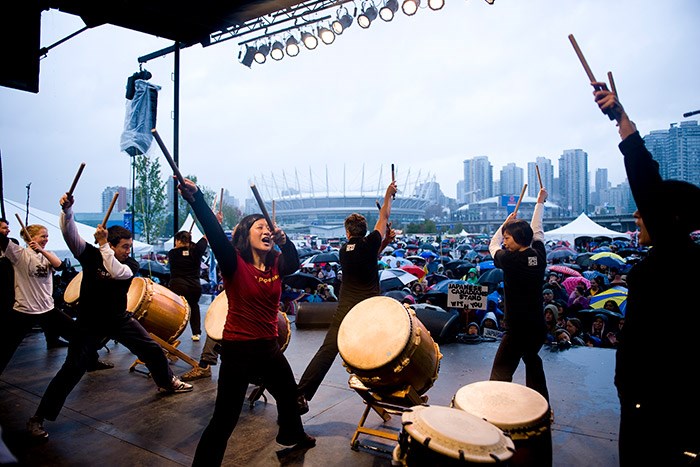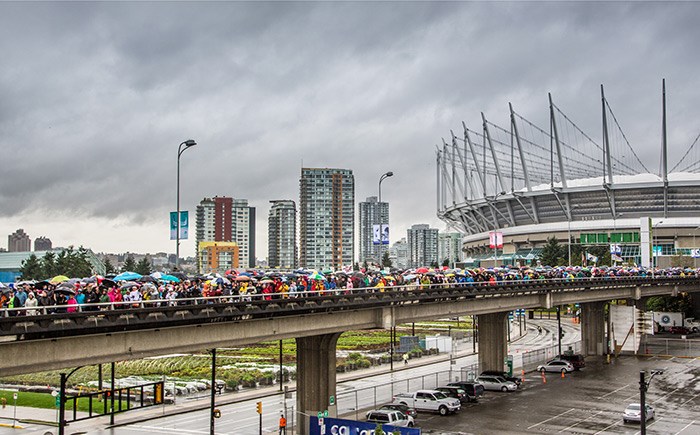
September 21st is World Peace Day, officially known as the International Day of Peace as declared by the United Nations. This year’s theme, “Together for Peace: Respect, Safety and Dignity for All,” is especially meaningful given recent events including the protests in Charlottesville, Virginia and the string of terrorist attacks in Western Europe and beyond. Amidst all the conflict and chaos, it’s not difficult to see that reconciliation is something that is needed now more than ever in all communities and by all peoples.
According to the United Nations, this year’s International Day of Peace is “about bringing people together and reminding them of their common humanity.” The notion of “common humanity” is at the core of the ongoing reconciliation movement, which has been gaining momentum in Canada particularly with the acknowledgement of 150 years of confederation. “We [have] lost sight of our common humanity — that is why we hurt each other,” said Chief Robert Joseph, Ambassador for Reconciliation Canada, the non-partisan charitable organization that is co-hosting the Walk for Reconciliation on September 24th. “This is the time we can reflect on our shared history together.”

The upcoming Walk for Reconciliation, as well as the inaugural Reconciliation Expo that will take place immediately after the Walk, aim to unite people and show a shared commitment towards peace and reconciliation. Both events are an opportunity to reflect on what reconciliation means on both an individual and a societal level regardless of one’s ethnic, cultural or religious background. They are an open invitation for everyone to join in solidarity and be a part of the movement towards reconciliation.
“The process of reconciliation is creating a strong knowledge base to help others in their painful journeys of darkness,” said Sukhvinder Kaur Vinning, former Executive Director of World Sikh Organization of Canada. “Many survivors of Indian residential schools have tools and best practices that they have found useful as they shifted from victim to survivor to thriver.”
To Vinning, reconciliation is something that benefits everybody: “The unfortunate truth is that there are many Canadians who are survivors of rape and abuse, and many Canadians who are survivors of genocides from around the world. These survivors can benefit from the pooled wisdom of the survivors of Indian residential schools.”
By coming together and listening to each other’s experiences, a pathway to reconciliation can be paved. For Robbie Waisman, a Holocaust survivor, speaking about his own experience of being sent to the Buchanwald Concentration Camp as a teenager has helped other survivors – individuals who have lived through their own atrocities and adversities – find the strength to share their own stories and know that they are never alone. “I think any of us in our community who is in a position to bring healing and reconciliation has a sacred duty to do whatever they can,” said Waisman.

The Walk for Reconciliation will take place on Sunday, September 24th, at 9:30 a.m. on Cambie St. and Georgia St. Marshalling will begin at 9:00 a.m. For more information on the Walk for Reconciliation and the Reconciliation Expo, visit www.WalkforReconciliation.ca.
The Walk for Reconciliation is part of Reconciliation in Action: A National Engagement Strategy, a Canada 150 Signature Project, and is funded in part by the Government of Canada. The Walk for Reconciliation is a Canada 150+ Signature Event and the event is being delivered partnership between the City of Vancouver and Reconciliation Canada.


